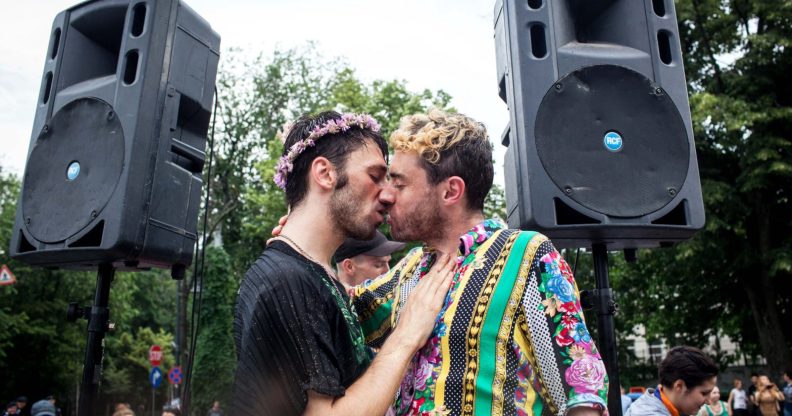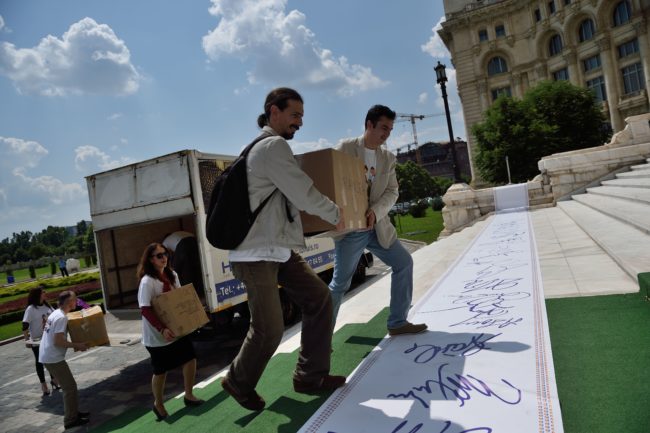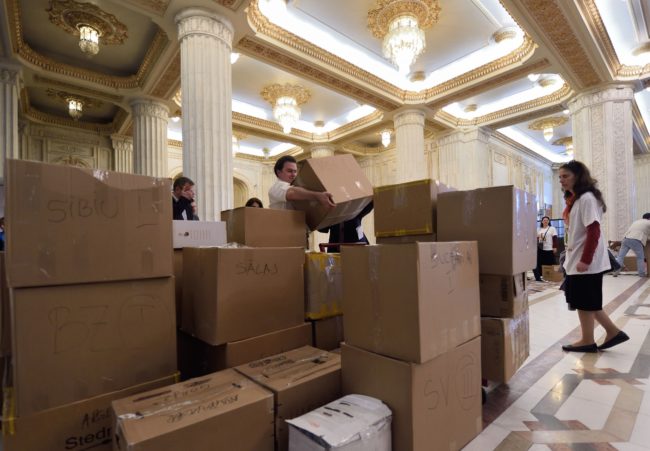Human rights groups challenge ‘homophobic’ Romanian marriage referendum

Orthodox church in Romania
Human rights groups in Romania are coming together to challenge a referendum set to take place next month which could change the constitutional definition of marriage to being between “a man and a woman.”
The groups have now submitted legal challenges on the constitutionality of the vote to the country’s Constitutional Court.

DANIEL MIHAILESCU/AFP/Getty
While same-sex marriage and civil partnerships are currently illegal in Romania, the constitution currently defines marriage as being between “spouses”.
If the referendum is passed, human rights groups are afraid that it could make it more difficult for any moves to be made towards equal marriage in the future.
The referendum is set to take place on October 7.
Amnesty International, along with the European Commission on Sexual Orientation Law (ECSOL) and the European Region of the International Lesbian, Gay, Bisexual, Trans and Intersex Association (ILGA-Europe) have come together to challenge the constitutionality of the vote.
“Instead of recognising that everyone is entitled to the same human rights and equal protection under the law, this referendum panders to homophobia and might result in constitutional changes that would violate European and international law,” said Arpi Avetisyan, lawyer for ILGA Europe.
Barbora Černušáková, Amnesty International’s researcher on Romania, said that if the changes are approved, they will be “a clear backward step for Romania and would have a severe impact on the lives of families not based on marriage.”
Romania’s Senate approved the bill last Tuesday, which opened up a five day window for groups to challenge the constitutionality of the new definition of the family in the Constitutional Court.
The referendum came about after Coalitia pentru Familie, a collection of groups who want to preserve the meaning of the traditional family, submitted a petition that was signed by three million people to the government.

DANIEL MIHAILESCU/AFP/Getty
The petition called for the government to change the constitutional definition of a union to being between “a man and a woman.”
In Romania, if a petition is signed by 500,000 people, it must be debated in parliament, and could lead to a nationwide referendum. The petition originated in 2016, and it is thought that it was signed by a quarter of Romanian people.
An LGBT+ organisation, called MozaiQ, last week called the referendum “immoral”, according to Euro News.
“We will not validate this referendum through our presence and we will recommend people not to cast a vote in the upcoming referendum. This referendum only leads to more marginalisation and discrimination against the LGBT community,” said Vlad Viski, the group’s executive director.

